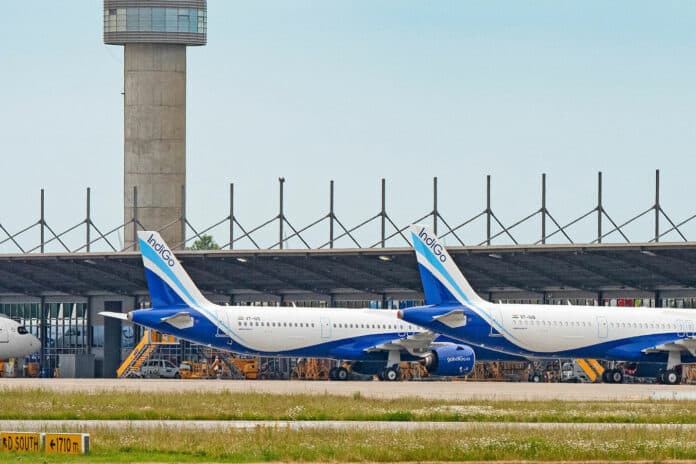SAF (Sustainable Aviation Fuel) is expected to play a crucial role in decarbonizing aviation. As a global leader in the research and use of alternative fuel, Airbus is innovatively doing its part.
Airbus’ ambition is to play an active role in promoting SAF as a credible and efficient lever for decarbonization. This year, the company has already committed to using 10%-pure SAF in the fuel mix of its commercial aircraft and helicopter internal operations.
At their discretion, customers ferrying aircraft from its Tianjin, China, and Mobile, Alabama, delivery centers to their home base are already offered varying concentrations of SAF. Now, the Airbus delivery team is offering up to 5%-pure SAF, free of charge, to customers taking delivery of aircraft in Toulouse and, from September to those taking delivery in Hamburg.
The first airline to benefit from this offer was Indigo, whose new Airbus A320neo had to fly from Toulouse, France, to Delhi, India, in early July.
Airbus has secured 6,805 hectolitres (HL) of SAF to achieve this objective with different blend ratios ranging from 30 to 49%. This will create around 18,000 HL, or 475,500 US gallons, of blended SAF for 2023 alone.
At the same time, Airbus is working with various SAF producers to ensure the fuel supply. It recently announced a partnership with LanzaJet to support building SAF facilities which will use LanzaJet’s proprietary Alcohol-to-Jet (ATJ) technology pathway and accelerate the certification and adoption of 100% drop-in SAF, which would allow existing aircraft to fly without fossil fuels. The partnership follows last year’s announcement with renewables producer Neste which sees the two companies cooperate to accelerate the transition to sustainable aviation fuels.
SAF is an approved fuel for aviation that is a blend of up to 50% synthetic components made from waste products and kerosene. The synthetic component produces an average of 80% fewer carbon emissions over its life cycle than conventional jet fuel.
All Airbus aircraft, including military aircraft and helicopters, can already fly with a 50% SAF blend. The company aims to make our entire product portfolio capable of flying with 100% SAF by 2030, acting as a catalyst to ready the ecosystem for a 10% global uptake by 2030.
